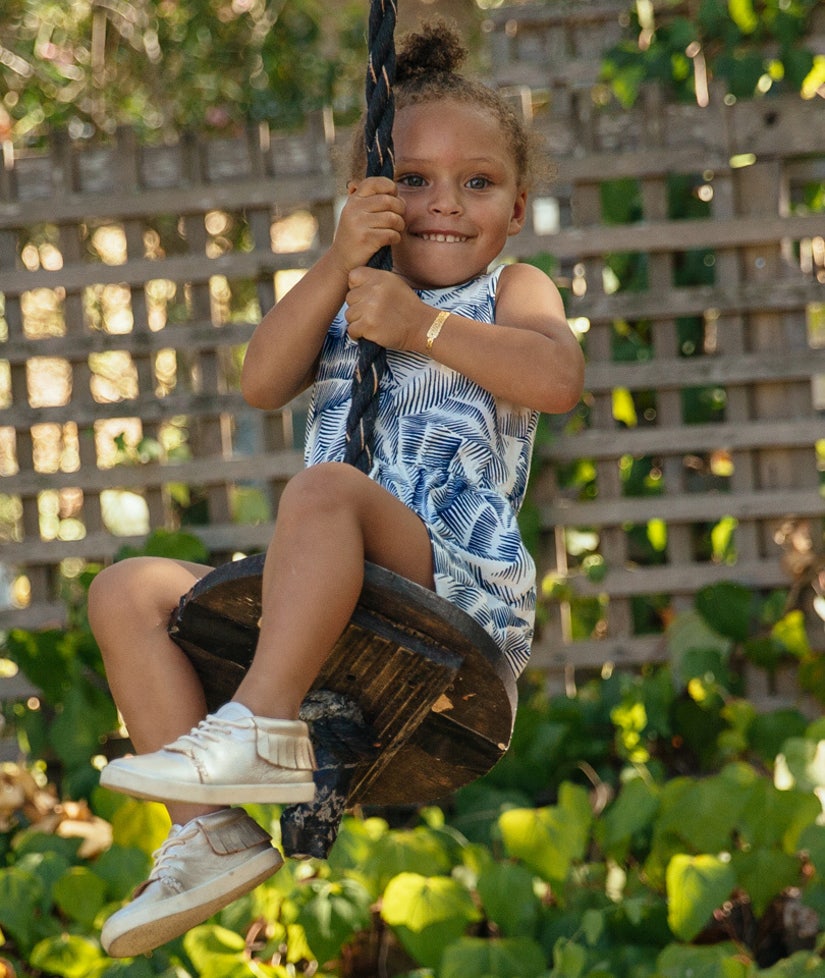When a seemingly absurd “debate” surfaced regarding whether it was appropriate for the Golden State Warriors’ superstar, Stephen Curry, to occasionally bring his exuberant 2-year-old daughter, Riley, to NBA postgame news conferences, I made a firm decision to steer clear of the discussion.
The entire notion seemed utterly ludicrous to me, and I found it hard to believe that this was a genuine topic of debate among reasonable individuals. After all, how could anyone take issue with the occasional presence of an adorable toddler like Riley, whose interruptions during postgame chats added a touch of innocence and charm?
Yet, there was another reason why this topic felt somewhat personal to me. You see, I too am the parent of a wonderfully energetic 2-year-old, named Jesse. Just this morning, Jesse has already embarked on a whirlwind of activities, from playing the accordion to serenading his plastic bulldozer with a rendition of “Happy Birthday.”
He’s left his mark on the dining-room table with crayon scribbles, attempted to engage in a game of tag with our household cat for the umpteenth time, and managed to create chaos by inadvertently launching a pair of balloons into the ceiling fan.
In between all of this, he’s managed to snack on half a bagel and even attempted to take a bite out of a small rock he found on the sidewalk—typical toddler behavior at its finest.
The endearing antics of Stephen Curry’s daughter have served as a poignant reminder of a fundamental truth: sports should be for kids. In an era where professional athletics often become entangled in high-stakes competitions, lucrative contracts, and intense scrutiny, it’s easy to lose sight of the simple joy and innocence that sports can bring to young fans.

:upscale()/2015/11/12/830/n/24155406/c01f74dd3b899217_fp_hardsole_curry3_grande.jpg)
Riley Curry’s playful appearances at her father’s NBA postgame news conferences captivated audiences worldwide, injecting moments of spontaneity and charm into the often regimented and serious atmosphere of professional sports. Her unabashed enthusiasm and curiosity reminded us all of the pure delight that children find in sports, unencumbered by the pressures of competition or the weight of expectations.
Moreover, Riley Curry’s presence at her father’s news conferences sparked conversations about the importance of inclusivity and family-friendly environments in professional sports. Her playful interruptions prompted a reevaluation of traditional norms and highlighted the need for sports to be accessible and welcoming to fans of all ages.

Ultimately, the antics of Stephen Curry’s daughter served as a poignant symbol of the timeless joy and innocence that sports can bring to children everywhere. As we continue to navigate the complexities of the modern sports landscape, let us not forget that at its core, sports should be for kids—for the sheer love of the game and the simple pleasure of play.
